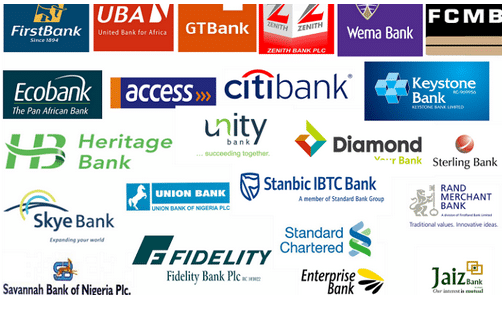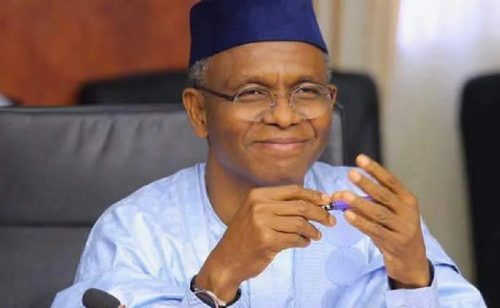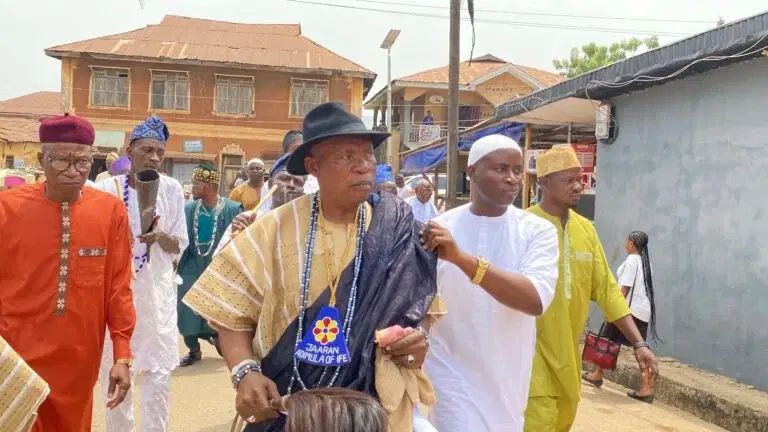Why commercial banks suffer macro-economic challenges

.. Banks burdened by exchange rate risks, others
Despite the Nigeria’s recent economic recovery, commercial banks operating in the country still face huge macroeconomic challenges.
In a clear indication of ongoing progress, the Nigerian economy has improved further, according to the latest Gross Domestic Product (GDP) growth in third quarter of 2017 by 1.40 per cent in real terms.
But at the last Monetary Policy Committee (MPC) meeting for the year, the members had voted to retain interest rate at 14 per cent; Cash Reserve Ratio (CRR) at 22.5 per cent and liquidity ratio at 30 per cent.
They maintained that banking industry is resilient despite government’s inability to operationalize its economic change mantra.
But commercial banks directors have been advised to explore huge potential in the North Eastern part of the country, just as the federal government of Nigeria intensive efforts to curb Boko Haram insurgency in the region.
The Managing Director/Chief Executive Officer, Nigeria Deposit Insurance Corporation (NDIC), Alhaji Umaru Ibrahim, at a recent interface with finance journalists across the country, pointed out that the North Eastern part of the country is endowed with human and natural resources.
Although, he maintained that North Eastern governors must be sanitized on growing the financial sector of their region, he stressed the need for governors’ collaboration with the Central Bank of Nigeria (CBN) on its credit schemes.
He called on the CBN to introduce different incentives required by Deposit Money Banks (DBMs), Primary Mortgage Banks (PMBs) and Microfinance Banks (MFBs) to reopen businesses in the affected Boko Haram local government areas.
In his view, Prof Chibuike Uche, said, “It is troubling that the government is increasing its international indebtedness, with attendant exchange rate risks, without a clear plan of ensuring that such loans will be repaid.
“These huge borrowings and injections into the national economy also complicate monetary policy by making the future direction of inflation unclear.”
He maintained that increased international indebtedness is impacting on the health of banking system in Nigeria.
According to him, “It is for instance my view that a good way of gauging the economic health of any nation is to examine the health of its banking system. This is so because banks essentially intermediate between surplus and deficit units of any economy.
“The success of such intermediation always depend on the health of the underlying economy that such intermediated capital is used to finance. Given the current high levels of the bad debt portfolio in some Nigerian banks, which has persisted for some time, it is clear that our banking system is inching towards being encumbered.”
Consequently, the World Bank has said that Nigeria’s GDP, which expanded by 1.4 per cent in the third quarter of 2017 (year-on-year); and the second quarter growth after the recession of 2016, reflects recovery in oil production, good performance in agriculture, and stronger non-oil industry growth due to the easing of Foreign Exchange (Forex) constraints.
However, the apex bank has spent over $13billion in its continuous effort to ease the pressure in the forex market and stabilize the naira.
The World Bank, in its Nigeria Economic Update, released recently noted that many fiscal challenges remain at different levels of government, and effort is needed to successfully address those challenges.
According to the bank, the new Nigeria Bi-Annual Economic Update has a special focus on the analysis of fiscal performance of Nigerian states.
Meanwhile, the MPC members thus reiterated its call on the apex bank to sustain its surveillance of banks activities for the purpose of prompt identification and mitigation of potential vulnerabilities.
They also called on the banks to support the quest to move the nation’s economy forward by extending reasonably low priced credit to the private sector.
The CBN governor, Mr. Godwin Emefiele in a statement said, tightening of the rates might result in the banks repricing their assets and loans, thus raising the cost of borrowing and therefore heightening the already weak investment climate and non-performing loans.
The communiqué signed by the CBN governor said, “with respect to loosening, the members said it believes that although while it would make it more attractive for Nigerians to acquire assets at cheaper prices, thus increasing their net wealth, and therefore stimulate spending as confidence rises, it nevertheless, felt constrained that loosening at this time would exacerbate inflationary pressures and worsen the exchange rate and inflationary conditions.
It said, “The Committee also felt that loosening will further pull the real rate deeper into negative territory as the gap between the nominal interest rate and inflation widens.
The Committee welcomed the steady implementation of the 2017 Budget, especially, the capital component of the budget, and urged increased momentum in expenditure directed at the growth stimulating sectors of the economy in order to reduce youth unemployment and restiveness.
Regarding the tepid turnaround in economic activities in the second quarter of 2017, the Committee emphasized that the employment gains of recovery were still minimal, noting that a number of important job elastic sub-sectors were still weak and may require more fiscal support to regain traction. Just recently, Moody’s Investors Service in its annual report, said that Nigeria’s economic fundamentals will strengthen the recovery, with real growth of 3.3 per cent in 2018 and 4.5 per cent in 2019.
The rating agency, also, said that Nigeria’s (B2 stable) credit profile is constrained by the continued exposure of the sovereign balance sheet to shocks, weak institutions and elevated deficits.
This new development, was contained in the rating agency Global Credit Research released yesterday that the Africa’s largest economy’s credit strengths include the large size of its economy and robust medium-term growth prospects supported, in particular, by its domestic demand.
Moody, also, projected a general government budget deficit of 3.6 per cent of GDP in 2017, down from 4.7 per cent in 2016, in 2018, the deficit will decline only slightly, to 3.2 per cent of GDP, comprising a 2 per cent of GDP federal government budget deficit and around 1per cent of GDP deficit at the state and municipality levels, as well as arrears that are likely to be split between the three levels of government.
But the Minister of Finance, Mrs. Kemi Adeosun on Monday disclosed that she has signed warrant for the release of an additional N750billion to finance capital expenditure in the 2017 budget.
This according to Adeosun while receiving a delegation of some French business people on a trade mission, has brought total amount of capital releases in the budget to N1.2 trillion as N450 billion had earlier been disbursed.
The 2017 budget, which was signed into law on June 12 has a capital expenditure component of N2.2 trillion.
She said Nigeria was on the path to economic recovery, which is not dependent on oil as “we have seen many opportunities opened up.”
The Minister noted that 75 per cent of the country’s economy is agriculture and that the current federal administration was working on a range of reforms.
She assured the visiting investors that naira, Nigeria’s currency “is now fairly priced and stable’, while we are mobilizing revenue from taxes. We now have a data that is able to correctly assess tax payers.”










